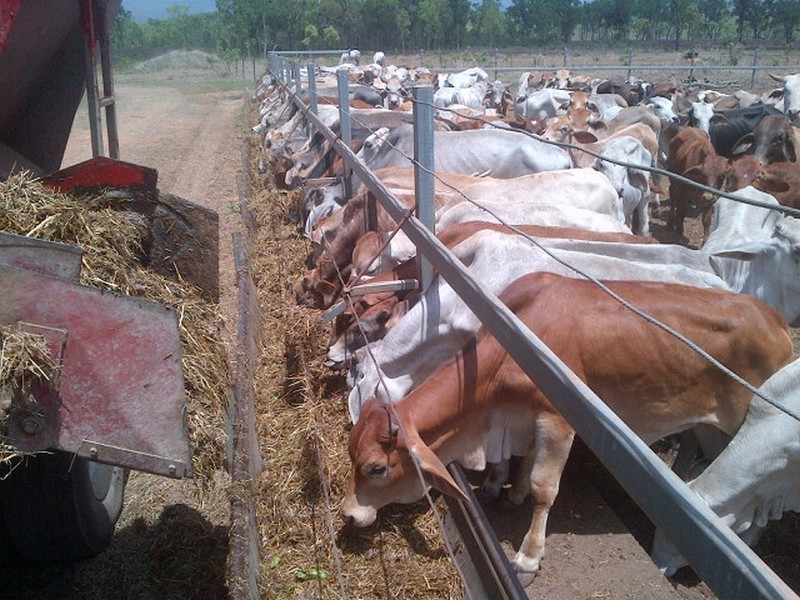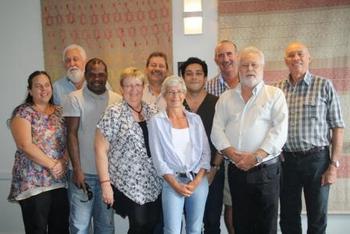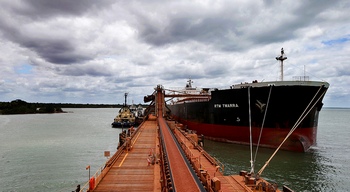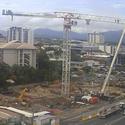As talk of a northern state dies down, focus should turn to creating jobs
Instead of wasting energy on a separate North Queensland state, we should support grass roots organisations trying to create jobs and grow industries.

Remember the debate about Tropical North Queensland becoming its own state?
Talk of secession was all the rage just a couple of months ago. But as usual the talk turned to inaction and apathy returned.
Regardless of the cyclical nature of outrage and scorn towards our southern neighbours, I firmly believe Tropical North Queensland does not need its own state.

We already have enough difficulty as it is getting funding directed in our direction due simply to the fact that we have to contend with the population imbalance between Queensland's north and its south-east corner.
Seceding will not alter these problems because the decision-making in these regards are based on population.
Being our own state would mean battling it out with the other states and territories in Canberra and, let's face it, Canberra is being told the same thing by all states and territories.
Everyone wants more, even though there is less to go around.
If a split did ever take place, Far North Queensland would most likely be classed as a territory, meaning we would still not gain autonomy as the Commonwealth Government would directly be in control of law making and with the current (and seemingly unending) swing culture when it comes to voting, this option seems the most volatile.
Perhaps of more interest - and certainly potential benefit - to our fate here in the tropical north is the ongoing spotlight on developing Northern Australia.
Instead of wasting energy and rhetoric on becoming our own state, we should instead use this opportunity to represent our issues accurately and not let the politicians blanket us and diminish our concerns in easy and tunnel-visioned media faux-positivity.

The first thing that needs to be addressed is simply aligning the policies of the State and Commonwealth Governments instead of leaving gaps in policy.
This of course is easier said than done. If the polls and bookies are correct, the Turnbull Coalition Government will be re-elected on July 2, so we will end up with the current situation of having two different parties at both levels of government.
One key example is the standing Cape York Regional Plan - the review of which has remained stagnant since the former LNP state government was voted out of office in early 2015.
The Labor Government's looming changes or reversals of the Vegetation Management Act will see the state government's policy direction at odds with that of the Federal Government.
It is great to see organisations like AgForce and Cape York Sustainable Futures (of which I am involved) rallying to the defence of the bush and it is a pity that politics always seems to get in the way of sensible, streamlined policy outcomes.
We need to support those organisations working in the regional areas, rather than the politicians who will only use such a cause to position themselves in a kinder light and steal the thunder of the real advocates.
It is these organisations and advocates who stick to their guns and maintain consistency on issues and policies.
As many politicians tend to do, they ultimately drop the ball and move on to the next flavour of the day when it comes to issues and causes.

Apart from angst over politics, policies and secession, there is hope for many industries in the tropical north.
We just need to wait and see whether these industries and projects get the green light or the Green curse.
The cattle export sector and agricultural pursuits in areas such as Lakeland and the Atherton Tablelands, mining potential in areas south of Weipa such as the $1 billion South of Embley/Amrun project and expansions to the military presence in Weipa will all bring positive economic boosts.
With these industries on the move, it will naturally lead to a spike in other economic spin-offs for the region.
If we do our best to lobby collectively for these opportunities, we can also generate benefits for welfare reform. There needs to be jobs and opportunity to be weaned off of welfare, and the same principle can be extended to all those individuals, families and communities who are suffering financially and economically in rural Australia.
This is the big picture story of the bush and it needs to be looked at holistically, rather than being hindered due to selective listening in the halls of power and many in the media.



